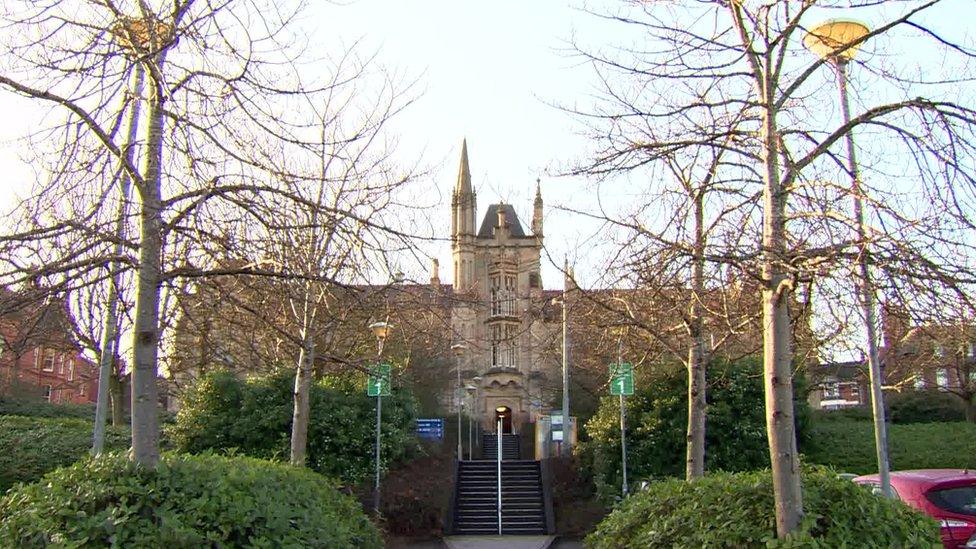Northern Ireland child post-mortem examinations to be done in England
- Published
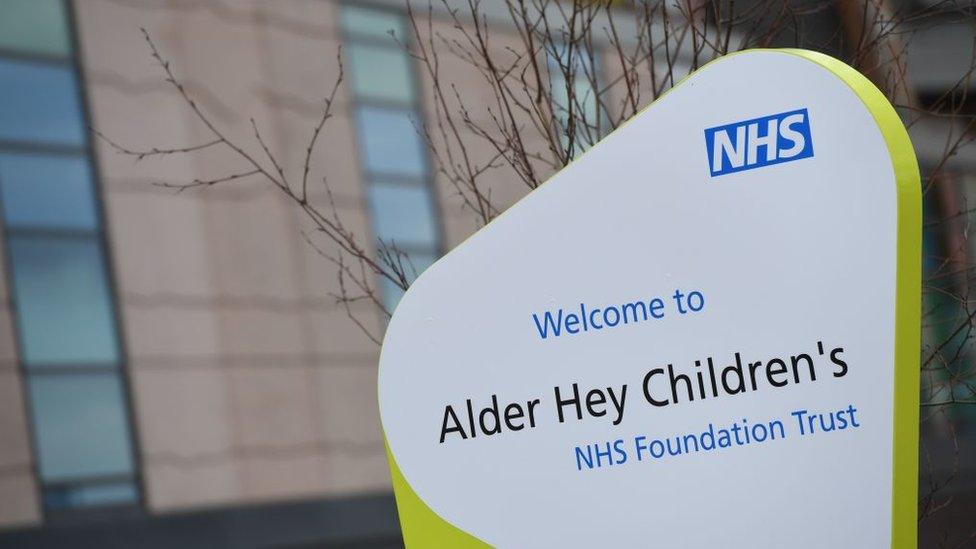
From January 2019 post-mortem examinations on children from NI will have to be carried out in Liverpool
Post-mortem examinations on infants in Northern Ireland will have to be carried out in a hospital in England due to a lack of specialist staff.
The paediatric pathologist service is currently provided on a regional basis by the Belfast Trust.
However, the BBC can reveal that the single remaining consultant will leave his post in February 2019.
Three paediatric pathologists will have either retired or resigned since 2016.
The Health and Social Care Board (HSCB) confirmed to the BBC that from January the service will be performed at Alder Hey Children's NHS Foundation Trust in Liverpool.
It means that bodies of babies who require a post-mortem examination will have to be transported either by air or sea.
The board said families will be supported in travelling with their baby if they wish to do so.
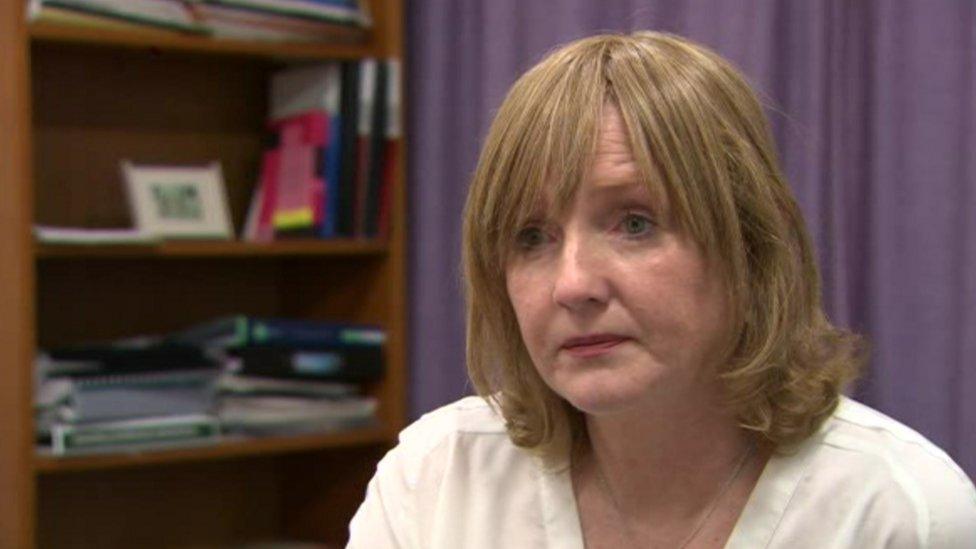
Heather Reid from the Health and Social Care Board says the move is "regrettable"
About 240 hospital autopsies are carried out on children in Northern Ireland each year.
Parents can choose whether or not to have a post mortem examination done on their baby, on rare occasions it may be ordered by a coroner.
The vast majority of the specialist work of paediatric pathologists involves post-mortem examination of stillbirths, late miscarriages and babies who live only a short time after birth.
It occasionally carries out post-mortem examinations on older babies and children.
Their work can be crucial in providing answers to a family as to why a baby or child may have died as well as detecting obstetric and paediatric conditions.
It can have important implications for future family planning when a mother has undergone a miscarriage or stillbirth.
'Regrettable'
The HSCB said the move was regrettable.
Heather Reid, public health specialist with the HSCB said that they recognised that the loss of a child is one of the most devastating things that can happen to a family.
She said that it fully accepted "that the prospect of the post-mortem examination being performed outside Northern Ireland may compound the distress experienced by families".
"While it is acknowledged that a service outside of Northern Ireland is not what we would wish for, working closely with a much larger centre such as Alder Hey will provide a more robust service in the interim period," she continued.
The HSCB said that despite what it called "significant efforts to address this situation", replacement paediatric pathologists could not be found.
These efforts included repeated recruitment drives nationally and internationally.
No applications were received.
Dr Neil Anderson, the clinical director for the Belfast Health and Social Care Trust, described the situation as "not the way we would like the service to be".
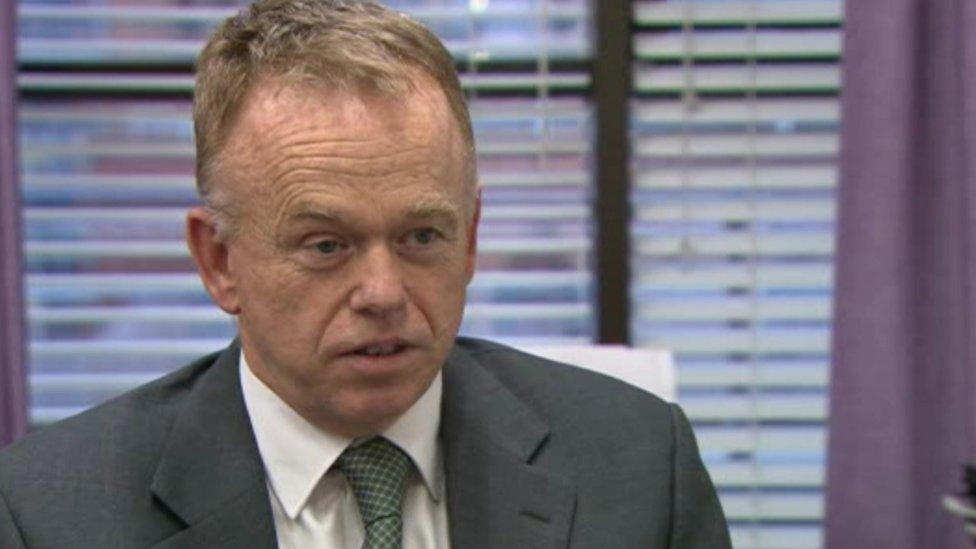
Dr Neil Anderson accepts that travelling to England with the remains of a child will be difficult
"But in the absence of a local solution we think this is the best solution we have for the medium term," he said.
He accepted that travelling to England with remains will be difficult for some.
"If it is explained to them and they understand that everything will be done in a dignified and respectful fashion, hopefully the majority of people will agree to the post-mortem examination as they do at present.
"But I acknowledge that some people may feel that it is too much and may not be able to give consent to the examination."
He said he viewed the change as an interim solution and that there would not be undue delays.
"Alder Hey have given us assurances that they will prioritise the work coming from Belfast because they are aware of our own particular circumstances and that everything they do will be done with that in mind so that they don't add an additional barrier or additional delays," Dr Anderson added.
'Not enough staff'
Sources have told the BBC that heavy workloads, not enough staff and poor management are also partly to blame.
One health professional told BBC News NI it was "disappointing".
"This was flagged up to management several years ago that there would be a critical shortage of specialist staff but little was done at the time to try and recruit or retain those who were still there. Local health trusts are finding it really difficult to recruit the big posts and that's not good for the future."
SDLP health spokesperson, Mark H Durkan MLA, said the move will only increase the suffering and stress of bereaved families.
"This situation cannot be described as unforeseen as pressures on this service have been highlighted before and there are serious questions to be answered as to how the department and board have allowed things to get to this point," he said.
"The proposal that families will need to send their beloved child away for a week to get these answers will mean more stress and suffering for families in their darkest hour.
"It may well lead to parents opting out of the process altogether. If this service is lost now, will it ever be restored? Is there the possibility of an all-island solution? ''
The BBC understands that the HSCB considered looking at technology, whereby parents could have followed their child's remains as they made the journey to and from England.
The health and social care board, however, said, any use of technology, including an app, was not being considered.
- Published11 November 2018
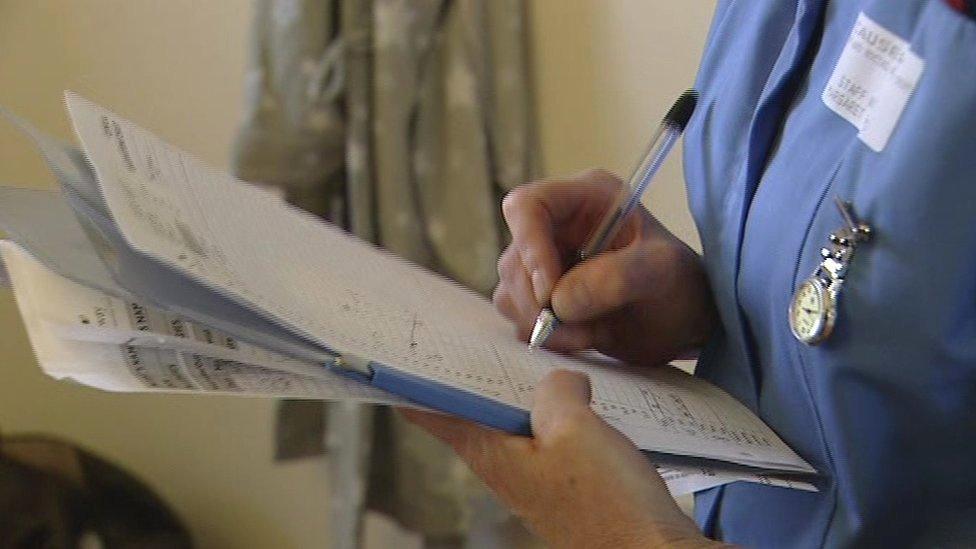
- Published8 November 2018
